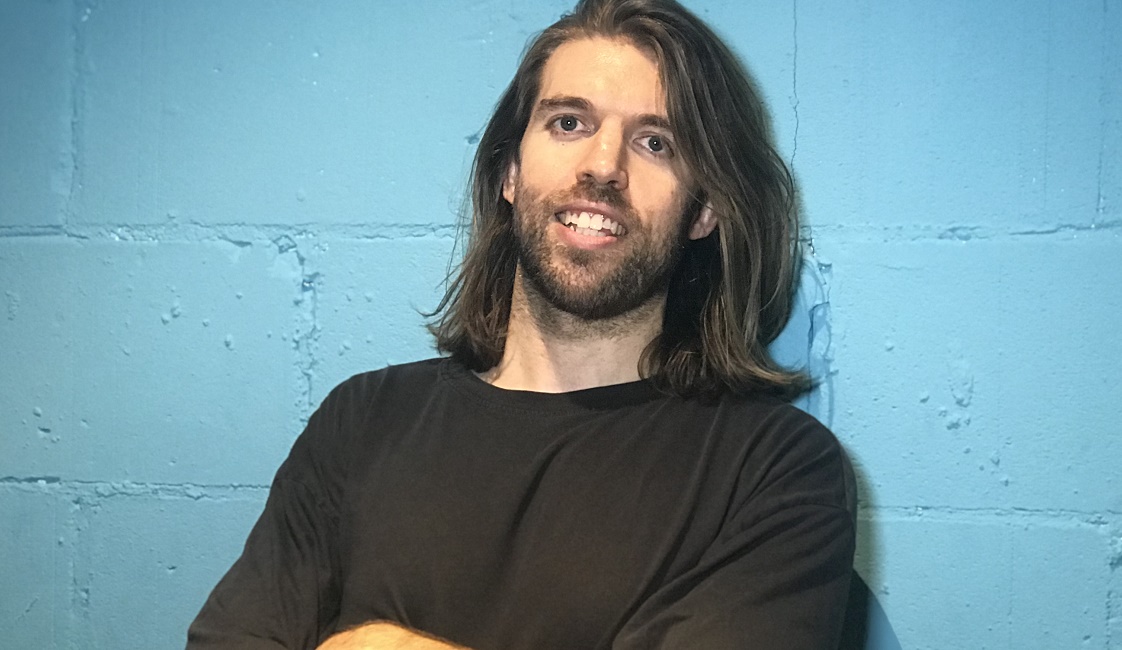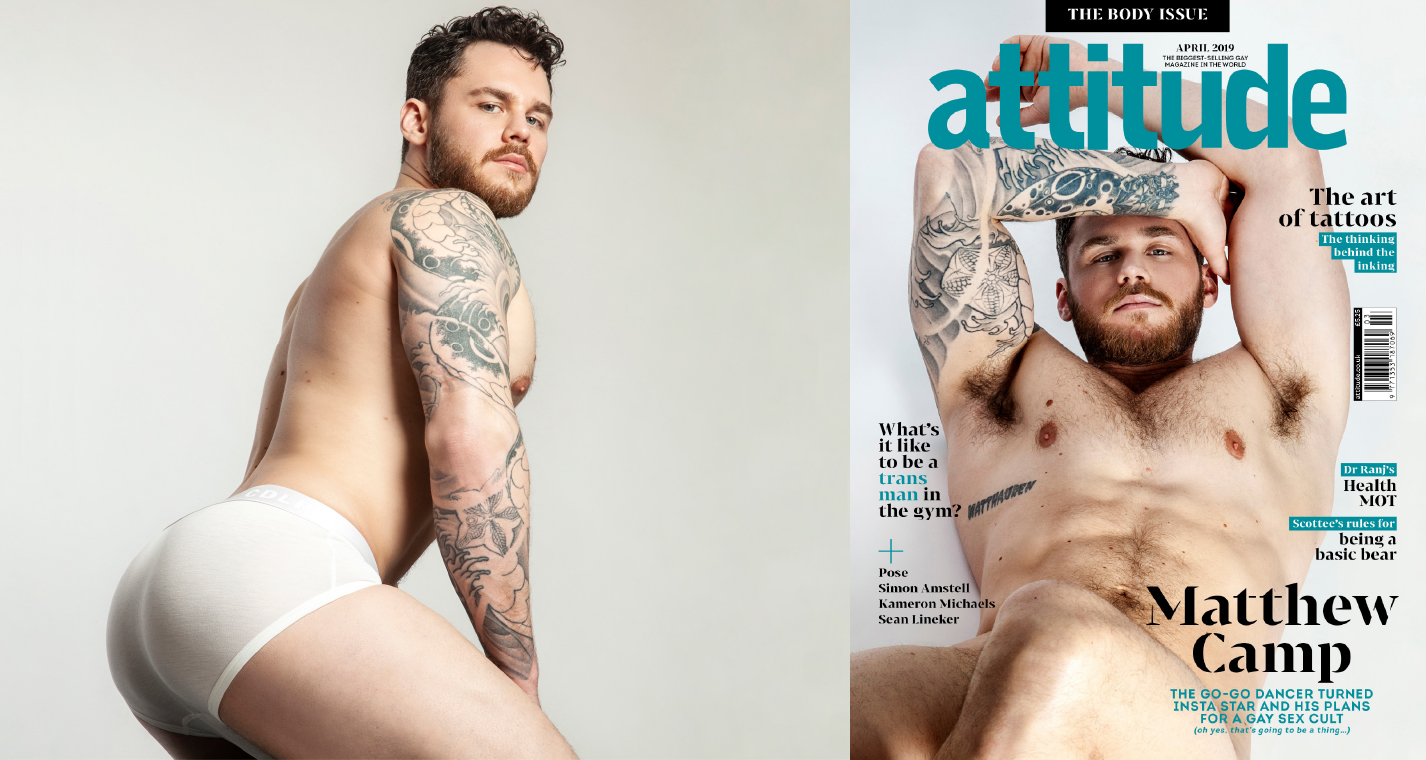‘My sexuality and self-denial was one of the reasons that triggered my eating disorder’
Cassius Powell tells Attitude about his struggle with his eating disorder
By Steve Brown

As Attitude’s Body issue takes a look at the various bodies of people, we celebrate the diverse and unique feelings people have about their bodies.
For Cassius Powell, he opens up to Attitude about his struggle with an eating disorder and recalls how his sexual confusion was one of the reasons that triggered it, as well as an article about Leonardo DiCaprio which called him ‘The Thin White Duke’.
Here Cassius tells us his story:
At the age of 15, every item of clothing I owned was deliberately oversized to hide the bones that were protruding through my skin, and I regularly gave away my packed lunches to classmates.
I would sit in thick jumpers during the summer to hide my embarrassment but at the same time compulsively deny myself food to remain thin, which parallels the feelings and experiences of a lot of gay men. The impulse to look like the object of desire, the male body ideal.
On varying levels, we actively seek out to observe the male body, be it through social media, films, gay apps, art or magazines — comparing our bodies and often denigrating them in the process.
It’s a problem that has become exacerbated by advertising and social media, and as a society we need to move to counter these effects by educating future generations on self-esteem and body diversity.
My eating disorder was triggered for several reasons. The confusion over my sexuality and its subsequent self-denial, low self-esteem and the pressure to look good on stage as a child performer.
But I remember the exact moment I made the conscious decision to try to take control of my teenage turmoil. My friends had become obsessed with Leonardo DiCaprio and were swooning over him in Romeo + Juliet.
I read an article about him where he was called The Thin White Duke and I acquainted his desirability with the waif-like quality of his physicality, disregarding his heartthrob looks, talent and star quality.
I firmly believed that my own status, and sex appeal, would be far greater if I too become thin.
It started humbly, avoiding dessert, taking jogs with my father and so on until eventually my entire headspace was occupied by the obsession to lose more and more weight.
I would often go to bed chanting the mantra: “I will look exactly like Leonardo DiCaprio,” over and over until I would drift to sleep in exhaustion, triggered by a diet that struggled to sustain my growing body.
My poor parents felt deeply confused and afraid. I was disappearing before their eyes and no amount of angry confrontations with my mother could dissuade me. It wasn’t until I saw my father break down in tears that I considered seeking help.
Working with my GP and a dietician I made a gradual recovery, but it’s a disease that will live with me in some form throughout my life.
Now, working as a personal trainer and dancer, I maintain a fit body through functional training/conditioning and a healthy diet. I follow lots of lifestyle blogs and feeds, and subsequently I am targeted by brands across social media.
I cannot scroll without seeing an image of a shirtless man working out, which however welcome, can negatively influence my own exercise and eating habits. I set myself too many rules when it comes to food, and I tend to over-exercise.
Thankfully, I am aware when this happens, and I can intervene before it becomes a problem.
So many men suffer from mental illness, which among many things, is often triggered by the pressure to conform to male body ideals.
It is therefore the responsibility of social media and government regulators to look at how many ads of a similar nature are being pushed to an individual, and whether it constitutes as a bombardment of ideologies.
For example, many men will spend hours every day in the gym, devoting every ounce of energy to look like the men that saturate our screens and phones. We must educate younger generations of men to look at their bodies from a functional perspective, not just from an aesthetic view point.
Schools and families must also coach children to understand the reality of body diversity and the lifestyle illusions offered by advertising, social media and entertainment. We are beginning to see a shift away from more classical ideologies of what masculinity looks like but there is much work to be done.
There are moments when I become so overwhelmed by what I observe both consciously and subliminally, but I always bring myself back to this affirmation.
I love my body for what it helps me experience in this world, and there’s nothing more desirable than a person who loves who they are.
Cassius can be found on social media:
@cassiuspowell
@formationfitnesslondon
@stateofformation
If you or somone you know is struggling with an eating disorder visit beateatingdisorders.org.uk or call the Beat helpline on 08 08 801 06 77.
In Attitude’s Body issue – available to download and buy now – we celebrate the diverse and unique body’s people have.
In our new issue, we look at the meaning behind tattoos, what it is like to be a trans man in a gym, living with cerebral palsy and Dr Ranj delves into the ways some of us regularly harm our bodies.
Buy now and take advantage of our best-ever subscription offers: three issues for £3 in print, 13 issues for £19.99 to download to any device.

